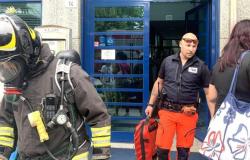Artificial Intelligence and machine learning can determine the origin of agri-food products and improve quality, but also predict their geographical origin and avoid possible fraudulent or unhealthy labels. This is the basis of the study conducted by Professor Davide Tosi, of the Department of Theoretical and Applied Sciences of the University of Insubria in collaboration with Professor Gilda Aiello, of the San Raffaele Telematic University, published in the Elsevier Journal of Agriculture and Food Research.
The study demonstrated how, starting from the observation of chemical characteristics, machine learning algorithms can be compared to predict the quality and geographical origin of red and white wine and olive oil. Approximately 7,700 data points of 5 types of wines and 9 types of oil, their 31 chemical-physical characteristics and 12 quality parameters were analyzed for each data set. The models achieved good precision in predicting the quality of the wine, the vineyard it belongs to and the origin of the oil. An AI-based tool has also been developed that can be used by stakeholders to predict the quality and geographical origin of wine and olive oil.
«First of all, we must underline that artificial intelligence is not just ChatGPT, there is a whole range of models capable of predicting information and numerical data – highlights Tosi – one of the application domains that we wanted to test with the San Raffaele Telematic University it is whether starting from the chemical-physical analyzes and some characteristics of wine or oil, it is possible to understand the origin of the materials of origin such as vineyards, olive production areas to also understand their quality, perceived by the end users. These are artificial intelligence models that predict the qualities compared to the chemical-physical analyzes of the product alone. This can lead to an improvement in the final quality.” And he adds: «Artificial intelligence is certainly already inserted in this area but also in many other application domains, it is now integrated into real life more than one might think. However, without confusing it with ChatGPT and without demonizing it. We must not only highlight the negative aspects, with the fear that it will steal everyone’s jobs, but also the many possibilities offered in the fields of food, medicine, smart cities and so on.”
Artificial Intelligence works well and can be a resource, but if guided by expert hands to avoid making mistakes. «We have published another work on generative artificial intelligence to understand how good it is at solving programming and coding problems that we give to our university students. We analyzed the output produced by these engines using qualitative software metrics and we came to the conclusion that, if well guided by expert people, they are able to solve even complex programming problems in a positive and qualitative way.” Tosi, who deals precisely with big data and artificial intelligence, leading a team of IT researchers also created the first Digital Assistant of Fabio Pizzul (PD candidate in the European elections), based on Artificial Intelligence, instructing ChatGPT with all the writings , audio, videos, speeches, posts and copyright-free articles by and about Pizzul from the last 14 years. Thanks to this archive it was possible to interact with Artificial Intelligence, obtaining “Pizzulian” answers on the various topics, to get to know the candidate and his thoughts.





